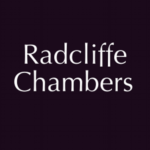Wills & Trusts Law Reports | April 2012 #118The husband (H) and the wife (W) were both 65, having married in 1980. There was one child of the marriage (C), aged 25. The former matrimonial home was Green Farm, a substantial property set in 72 acres in Kent. Trust assets fell to be divided following divorce.
In order to mitigate tax on the floatation of his company (ABC), two Jersey trusts were created by H in 1994 (No. 1 Trust and No. 2 Trust) and a company incorporated in the British Virgin Island called Giloch Investments Ltd (Giloch). No. 1 Trust was a discrertionary trust for a class of beneficiaries comprising H, W, C, ...
Wills & Trusts Law Reports | April 2012 #118Edward Greenstreet died intestate on 28 October 2009 and his estate of £514,600 passed to his son, Kieran. Kieran died intestate on 17 May 2010. Kieran’s estate of £6,000, combined with the estate of Edward, passed to Kieran’s three year old son, Rory Greenstreet. The aggregated estates were held on statutory trusts for Rory contingently on his attaining 18 or marrying or forming a civil partnership under that age.
Kieran’s personal representatives were Ellen Wright (Kieran’s partner and Rory’s mother) and Michael Greenstreet (Kieran’s uncle). ...
Claire Stewart contemplates recent case law on disputed ownership in the light of Jones v Kernott ‘Traditionally, a constructive trust will arise in equity where it would be unconscionable to allow a legal owner of a property to retain the beneficial ownership of it.’ This article will consider the recent judgment of the Court of …
Continue reading "Trusts: Silence is golden"
This post is only available to members.
Mark Hubbard explains the ramifications of a case in which the Court of Appeal upheld an order against settlors to disclose trust documents under their ‘control’ ‘ North Shore is a further example of a hardening of English judicial attitudes against those who are seen as using corporate and trust structures as devices to commit …
Continue reading "Trusts: ‘Puppet masters’ beware"
This post is only available to members.
Wills & Trusts Law Reports | March 2012 #117Privy Council (Lady Hale, Lord Mance, Lord Kerr, Lord Clarke and Sir Robin Auld)
The respondents made claims for breach of trust against the appellant in respect of breaches that occurred in Guernsey at a time when Guernsey customary law governed the duties of Guernsey trustees and also after the introduction of the Trusts (Guernsey) Law 1989 (the 1989 Law), but before that law was amended by the Trusts (Amendment) (Guernsey) Law 1990 (the 1990 Law). The trust instrument included an exoneration clause in respect of negligence by the trustee and ...
Caroline Watson and Matthew Feldman discuss the impact of Jones v Kernott in cases where there is an express declaration of beneficial interests ‘The question now being asked by practitioners up and down the country is whether the judiciary will again be prepared to step in to clarify the law in cases where there is …
Continue reading "Trusts: Clear intentions"
This post is only available to members.
Luke Barnes highlights the cohabitant cases that fall outside of the judgment in Jones v Kernott and the applicable case law ‘The claimant in sole name cases continues to face a stern test to establish a beneficial interest by virtue of an inferred common intention. In particular, it continues to be unclear what conduct may …
Continue reading "Trusts: Different rules"
This post is only available to members.
Green v Montagu shows that the question of legitimacy may still arise in cases of long-standing family trusts, as Thomas Dumont and William Moffatt delineate ‘The decision in Green rests upon a principle that lies at the heart of the conflict of laws: if a person holds a particular status under the law of their …
Continue reading "Trusts: Heirs and Graces?"
This post is only available to members.
Shân Warnock-Smith QC examines the partitioning of ‘Freeston’ trusts in the recent case of Southgate v Sutton ‘The US beneficiaries and the trustees were put in a difficult position as a result of the decision at first instance: the beneficiaries because of their continued exposure to penal US tax and the trustees because they could …
Continue reading "Trusts: Section 57 clarified"
This post is only available to members.






